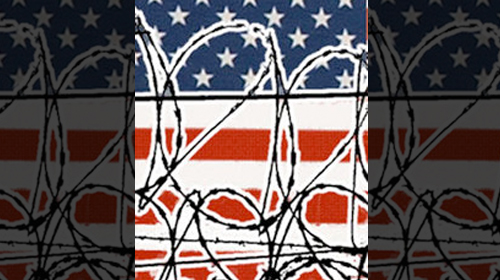VIDEO: Falling Short: Guantánamo Military Commissions and the Torture Connection


Khalid Sheikh Mohammed and four other prisoners accused of involvement in the 9/11 attacks will soon be tried at a military tribunal at Guantánamo Bay, despite the Obama administration's earlier stated intention to try the men in federal court.
On Sunday, a lamented that despite improvements in the military commission system made by the Obama administration, "even the best-managed trial will not be able to change the fact that this country has in the last decade accepted too many damaging and unnecessary changes to its fundamental principles of justice and human rights."
The piece also quoted the ACLU's Jameel Jaffer, who said: "'if someone emerges from this kind of system and then supplies a confession or a guilty plea, how confident can we be that the statement is untainted by torture? Imagine that another country — Iran, say, or North Korea — proposed as much. Would we buy it?'"
"They weren't established to provide truth or justice — they were established to provide show trials, to permit the use of evidence obtained through torture, and at the same time, to hide the fact that torture has happened," Shamsi says in this interesting panel discussion.
Case in point: hearings this week in the military commission trial of Abd al Rahim al-Nashiri (accused in the USS Cole bombing) are expected to be when he testifies about his treatment while held in the CIA's secret prisons. "'U.S. officials have repeatedly spoken about and acknowledged the torture techniques the CIA used on Mr. al Nashiri — from waterboarding to sleep deprivation to numerous other brutal tactics,'" the ACLU's Zachary Katznelson . "'Since this is all already public, there is no valid reason to censor Mr. al Nashiri's statements about what the CIA did to him.'"
The larger question of accountability for torture is covered in this that details a newly revealed Bush-era interrogation memo:
Obama has refused to pursue legal action against those who may have engaged in law-breaking under his predecessor's watch — saying he prefers to "look forward instead of looking backward." To some, this indicates there is little assurance that the U.S. won't in the future.
"The administration has clearly disavowed torture, and that is an important and welcome thing," said Jameel Jaffer, a national security expert at the American Civil Liberties Union.
"But they're steadily building a framework for impunity."
Learn more about military commissions: Sign up for breaking news alerts, , and .

